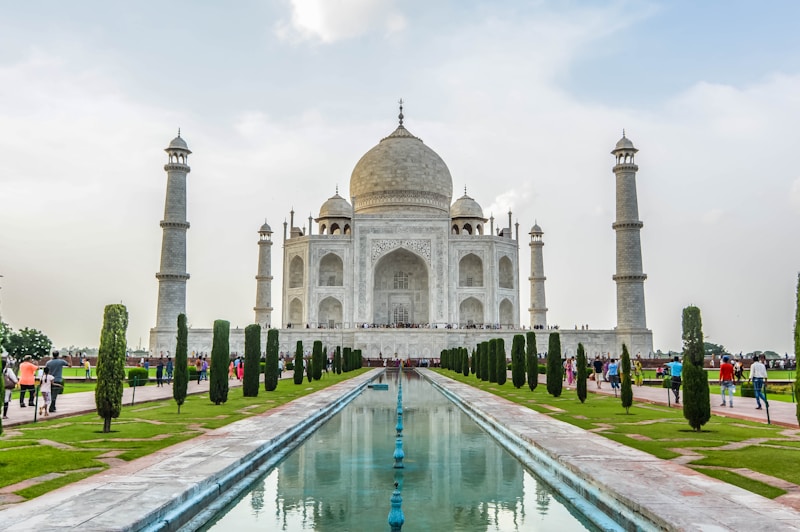Questions and Answers
What is a key aspect of cultural heritage according to the Latin definition?
Something that is to be inherited
What is the purpose of codes of ethics in the context of cultural heritage?
To provide a framework for professionals to make decisions
Why are ethics in cultural heritage complicated?
Because there are different stakeholders and interests involved
What is an example of a cultural heritage practice that is accepted in one country but banned in another?
Signup and view all the answers
What is the ultimate goal of heritage professionals in their work?
Signup and view all the answers
Why are cultural heritage and ethics closely linked?
Signup and view all the answers
What is the key idea behind the concept of universal heritage?
Signup and view all the answers
What is an important aspect of conservation beyond physical intervention?
Signup and view all the answers
What is an example of cultural heritage being used for commercial purposes?
Signup and view all the answers
Why is it important to consider the potential reversibility of changes in conservation?
Signup and view all the answers
What is a key consideration when deciding who should have priority access to a heritage site?
Signup and view all the answers
What is a challenge in conservation decision-making?
Signup and view all the answers
What is a key consideration in promoting change in conservation?
Signup and view all the answers
What is the challenge in determining the correct relationship between past atrocities and present duties?
Signup and view all the answers
Why might it be necessary to limit the number of visitors to a heritage site?
Signup and view all the answers
What is the relationship between conservation interventions and public heritage?
Signup and view all the answers
What is the primary difference between conservation and restoration?
Signup and view all the answers
What is an example of a cultural heritage site that is preserved for its historical significance?
Signup and view all the answers
What characterizes modern heritage mediation?
Signup and view all the answers
What is necessary to manage landscapes in transformation landscapes?
Signup and view all the answers
What is a key challenge of the twenty-first century?
Signup and view all the answers
What is a new demand in future cultural heritage work?
Signup and view all the answers
What happens to cultural heritage as society changes?
Signup and view all the answers
Why is Heritage Management necessary?
Signup and view all the answers
What is a result of a more heterogeneous society?
Signup and view all the answers
What is a key aspect of traditional heritage mediation?
Signup and view all the answers
What is a consequence of new actors in the cultural heritage field?
Signup and view all the answers
What is the significance of Heritage Management?
Signup and view all the answers
What is a result of greater focus on cultural heritage as a resource?
Signup and view all the answers
What is a consequence of more actors working with cultural heritage?
Signup and view all the answers
Study Notes
Conservation and Heritage Management
- Conservation is not limited to physical intervention, but also includes interpretation and sustainable use of places.
- It may involve maintaining a site and intervening only as necessary to counter the effects of growth and decay.
- Conservation can be reactive or active, and may involve private property.
- Public interest in significant places puts specific legislative and policy constraints on their owners.
- Interventions should respect the values of the place and consider the potential reversibility of changes.
Heritage Mediation
- Traditional heritage mediation is one-directional and straightforward.
- Modern heritage mediation is interactive and complex.
- Technology integration in heritage visitor attractions has pros and cons.
Heritage Management Challenges
- Establishing a sustainable society that meets the needs of the present without compromising future generations.
- Managing landscapes in transformation to continue telling important stories and contributing to a rich living environment.
- Strengthening humanistic and historical perspectives in cultural heritage work.
- Diverse cultural heritage vision with regional collaborations and international collaborations.
- New actors within the cultural heritage field bring new influences and commercialization of cultural heritage.
Heritage Ethics
- Cultural heritage is seen as an industry with ethical and social dimensions.
- Professional standards govern quality, appropriate actions, and behaviors.
- Ethics depend on history, social context, and politics of power.
- Heritage professionals must ensure that cultural heritage does not get lost or destroyed.
- The distinction between what should be preserved and what is best gone is complex.
Access and Commodification
- Cultural heritage is universal, but access is not always possible or equitable.
- Ethics are related to practical priorities, such as prioritizing local communities.
- Ethics are also related to appropriation and commodification, such as using cultural heritage for commercial purposes.
Studying That Suits You
Use AI to generate personalized quizzes and flashcards to suit your learning preferences.
Description
Explore the complex ethical and social dimensions of cultural heritage, including professional standards, values, and codes of conduct. Learn about the various stakeholders and interests involved in this industry and how ethics play a crucial role in governing quality and behavior.




